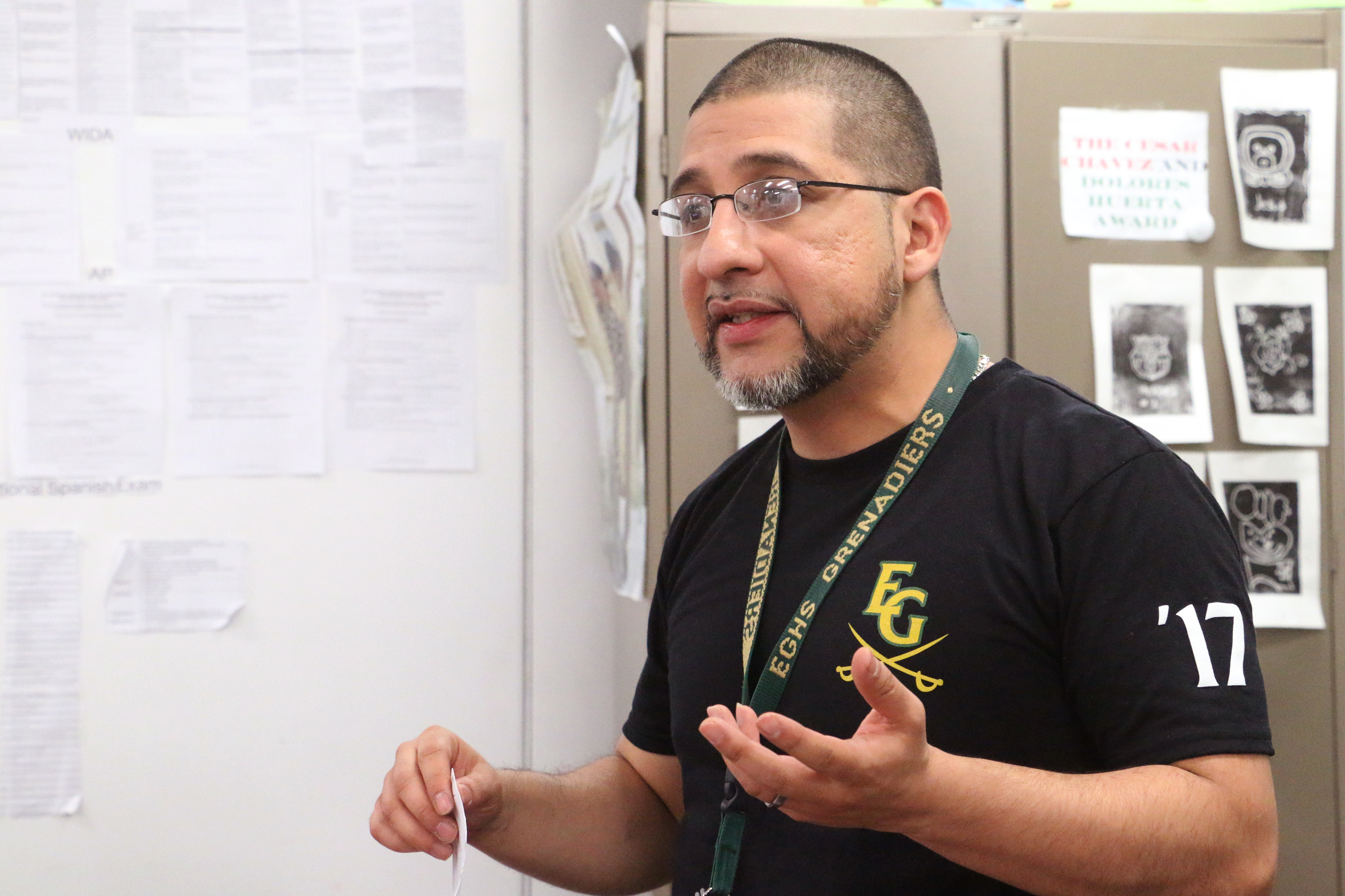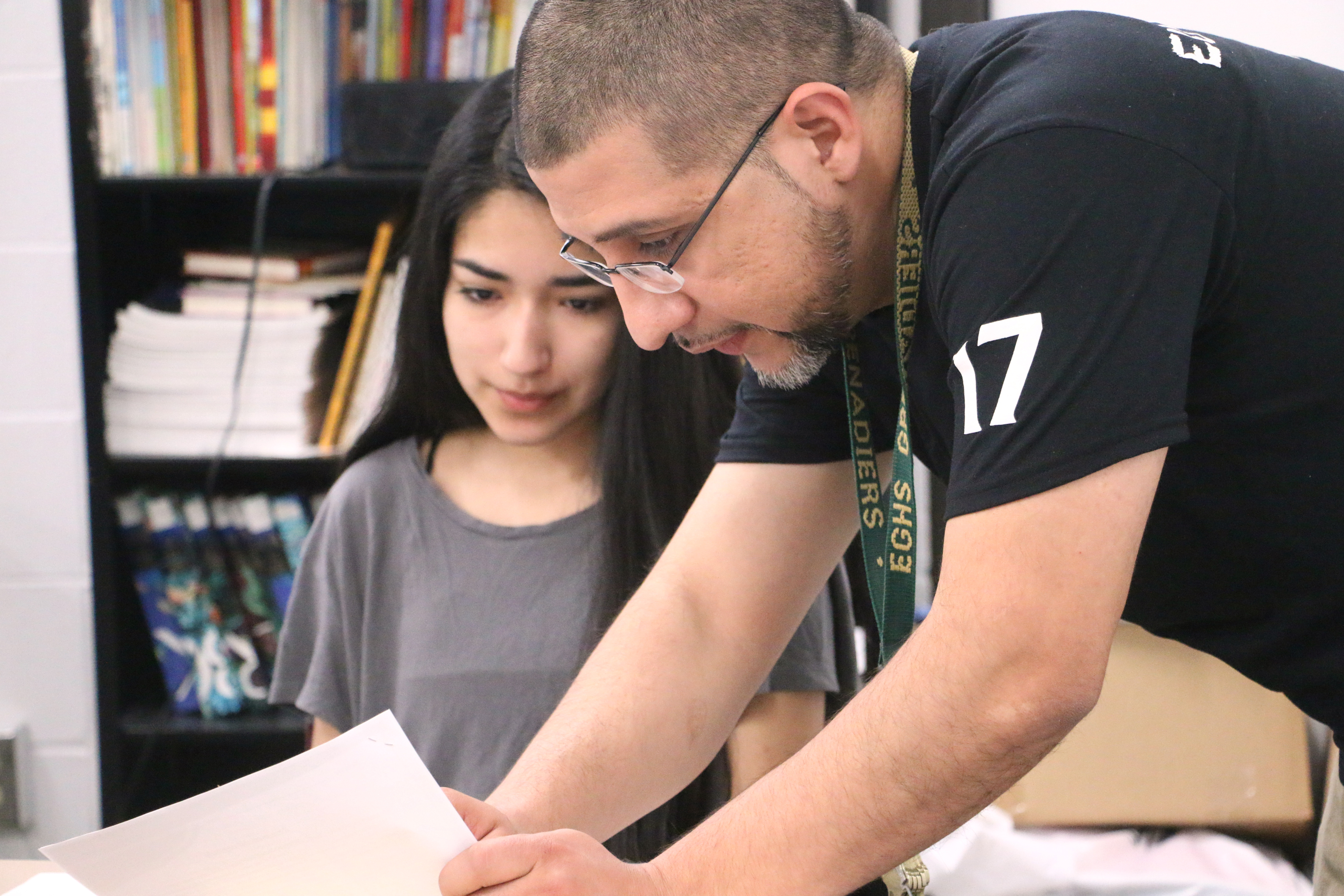
Ricardo Castro (EDU ’07) knows from experience the potential dangers when students see themselves negatively. He became involved in gangs as a teen growing up in Chicago.
Fortunately, his family and faith turned him around, propelling him toward college. DePaul gave him a minority transfer scholarship for three years, enabling him to earn his degree. Just a decade later, he was named a 2017 Illinois Teacher of the Year for founding a program to help at-risk teens like he was to follow his trajectory.
“He is one of the most impressive educators I’ve ever encountered,” says Paul Kelly, principal of Elk Grove (Ill.) High School, where Castro works. “He is constantly thinking about the long-term impacts of education, not only on an individual student, but on the entire community.”
We want students to become leaders, and the whole idea of [community] change has to come from within.
- Ricardo Castro (EDU '07)
A teacher of Spanish heritage classes, Castro noticed that many of his Latino students had a negative self-image. After brainstorming with his students, he founded Estudiantes Unidos (Students United) five years ago to mentor middle-school students.
“We came to the conclusion that when students are in high school, [a negative identity] is already set. You try to help someone, and they reject it,” he says. “The students and I decided to go into the junior high and begin mentoring kids as early as sixth grade.”
Through the voluntary program, Castro prepares his high school students to talk with younger students about community, social justice and how to pursue social reform. Two years ago, the high school students put those ideas into practice. Many of the school’s Latino students live in an unincorporated area, without access to a park district or library.
“We decided to become a temporary park district, a temporary library system ... and a summer camp,” Castro says. About 60 junior and senior high school volunteers run four stations—reading, STEM, sports, and arts and crafts. They also operate a mobile library. For each of the past two years, the camps have served about 250 children, and the high school students gain valuable leadership experience.

“We want students to become leaders, and the whole idea of [community] change has to come from within,” Castro says. He is so excited about the success of the program that he hopes to expand it to several other school districts in 2018.
Castro says he learned at the COE how to help his students by strengthening their community.
“Everything I teach is connected to making a difference in society. When I’m teaching the Spanish curriculum, we use Cesar Chavez and authors who connect to social justice. We talk about how our students can make a difference in their society,” he says. “I developed my philosophy of education at DePaul. That’s where I get the commitment to offer leadership opportunities to my students."